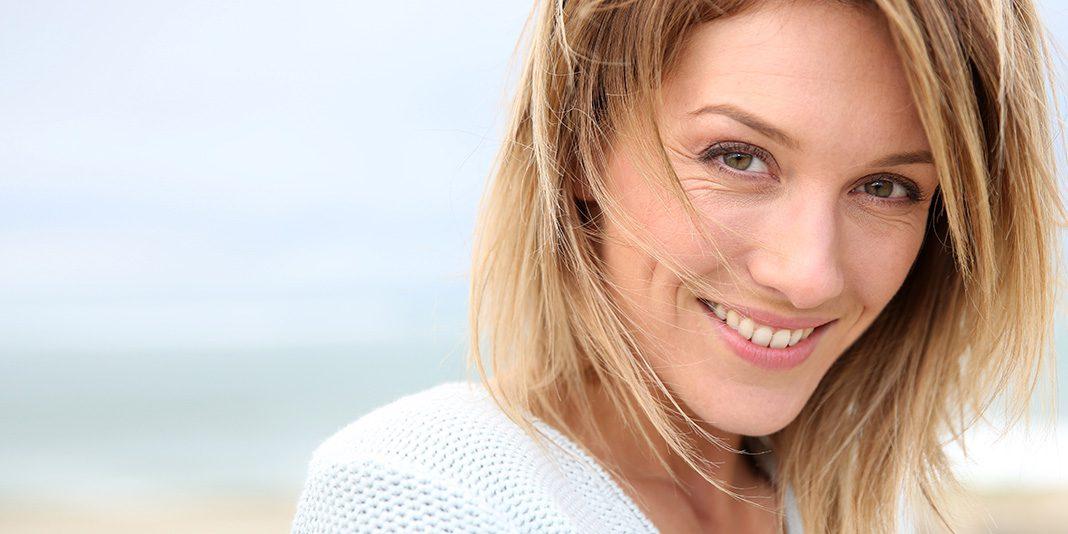In the last few years, the beauty industry has broken down barriers around race, body types, and more. Of course, we still have a long way to go, but we can’t overlook the improvements made to shade ranges and beyond. We have seen brands featuring unretouched models showing the beauty of their skin conditions, flaws, and truths. But, with all of this advancement from beauty brands, there still seems to be a missing demographic.
Age diversity is still lacking in most of the beauty community. There are ads promoting hair dye that combats grey hair, but the models featured are not even 30, and the grays in the before pictures are photoshopped in. There are hundreds of anti-aging commercials and campaigns that show models 10 to 30 years younger than most women shopping for these products.
Many women ages 40+ feel a lack of representation for them in the media, but this is also a missed opportunity for brands. Women in their forties and beyond are a massive part of the market. They are often further ahead in their careers and have a more disposable income to invest in skincare and makeup.
We can point fingers at the brands whose marketing lacks this diversity. We can even try to uncover why this unappreciated demographic gets overlooked, but instead, let’s celebrate some of the beauty brands doing it right.
CoverGirl has a history of inclusivity in its ad campaigns, but most recently, the onboarding of 70-year-old model, May Musk, has been an enormous success. The ad features Musk applying the brand’s Simply Ageless Foundation and implies that just because a woman is more mature doesn’t mean she isn’t interested in looking her best. Having this ad be so mainstream and practically making its way into every US household with cable is a significant step in the right direction.
Perricone MD is a more luxury brand than CoverGirl, making it even more appropriate for the older market. This is a line of skincare and makeup products with a more holistic and results-oriented approach to beauty. Recently, Perricone MD extended its foundation’s shade range by collaborating with The Silver Women, a platform that celebrates women from their middle-ages and beyond. This line of products is all about natural beauty and loving your skin, not masking it, and the women featured in the campaign do just that.
L’Oreal has been a champion at featuring models of all ages in its campaigns for years. Whether it is hair dye, makeup, or skincare, these campaigns target women that use the products. With its newer Golden Squad, the brand is genuinely challenging the norm of the beauty industry. With fabulous women like Helen Mirren, Jane Fonda, and Vanessa Williams, amongst more, the ad shows how its products created for more mature skin look on mature skin. By featuring recognizable women from their fifties to their eighties, potential customers feel seen and represented by a brand they see every day.
Eyeko began in 1999 with a new approach to beauty. In 2018, it created a campaign for its Bespoke mascara featuring Daphne Self, the world’s oldest supermodel, at age 89. This promotion is not just about the mascara’s benefits for each person, but how women should gain confidence as they age, not lose it. By featuring such a profound and inspiring woman in this campaign, Eyeko gives hope to an overlooked generation.
The more extensive and small brands that expand their reach and include all women in their marketing, the better it is for everyone. This generation of women gets to regain confidence at a time in their lives when society and the media seem to brush them off. The idea of ageless beauty also encourages women of all ages to embrace maturity rather than fear it.
We can grow to be the same if we see beautiful older women radiating light rather than hiding in shame. This type of age diversity in beauty marketing campaigns speaks to mature women and everyone who comes in contact with an ad, a billboard, or a commercial. Just like all other inclusivity, the more we branch out from the lazy one size fits all approach and appreciate all women for their unique differences, not only will the beauty industry change, but society could too.




































